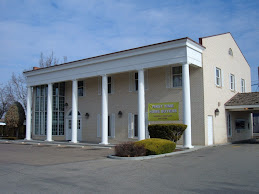
NADI, Fiji (9/22/09)--Credit unions in the South Pacific will gain greater political leverage and more educational opportunities with the formation of the Pacific Credit Union Network.
Members of the Pacific CU Network Advisory Committee and its supporter organizations are, from left: Michael Koisen, Papua New Guinea; Brian Branch, World Council of Credit Unions; Penisimeni Fifita, Tonga; Faataga Faataulofa, Samoa; Peter Mason, Credit Union Foundation Australia; and Manoa Seruvakaula, Fiji. Seruvakaula represented Anane Vadei, who will be Fiji's permanent committee representative.
The new organization, sponsored by Credit Union Foundation Australia (CUFA) and facilitated by World Council of Credit Unions (WOCCU), held its first organizational meeting last week at the Pacific Credit Union Technical Congress, a four-day educational event jointly sponsored by CUFA, WOCCU and the Fiji Savings & Credit Union League.
The network will provide technical assistance, communications and advocacy support, and develop a Pacific credit union database, said Peter Mason, CUFA CEO. The Australian credit union development organization began planning the network last year.
"The distance between credit unions located on South Pacific islands has kept many of them from developing the critical mass necessary for growth," said Mason. "The new network will provide the political and technological relationships to help them better serve their members."
The network was introduced to 102 congress participants from 11 countries. In addition to participants from Australia, Fiji and the U.S., countries attending were Kiribati, Papua New Guinea, Samoa, Solomon Islands, Timor-Leste (East Timor), Tonga and Vanuatu.
Other congress highlights included sessions on board/management relationships, strengthening credit union legislation, understanding the cost of delinquency, credit union marketing and a regulatory forum.
Faataga Faataulofa from Samoa makes a point during the Pacific Credit Union Technical Congress, which met last week. (Photos provided by the World Council of Credit Unions)
Members of the new network's advisory committee, which will help lead the group's development initiatives, include Anane Vadei, Fiji, who was represented on the committee by fellow countryman Manoa Seruvakaula; Michael Koisen, Papua New Guinea; Faataga Faataulofa, Samoa; and Penisimeni Fifita, Tonga. CUFA will serve as the network's secretariat, with WOCCU providing facilitation and resources.
The network and congress are the latest cooperative efforts between WOCCU and CUFA designed to help develop credit unions in the South Pacific. This is a region in which CUFA's influence especially has been of great value in fostering credit union growth, according to Brian Branch, WOCCU executive vice president and chief operating officer.
"CUFA has provided critical leadership in developing and supporting Pacific region credit unions for many years," said Branch. "We are now seeing the fruits of CUFA's dedication, and our collaboration as credit unions puts improved management practices in place to prepare for increased regulatory oversight that is coming in the wake of the global financial crisis."
Courtesy of cuna.org








